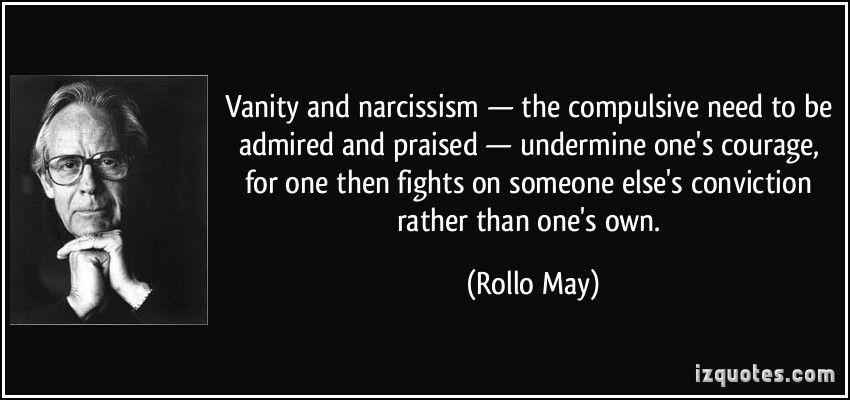What does it mean to be masculine
What Does it Mean to Be a Man?
I can recall the first time that I asked the question, “What does it mean to be a man?” to a group of young men I was doing healing work with. In this particular situation, the young men were sharing their feelings about an exercise that each of them had just experienced, focused on the misogyny, sexism, and patriarchy that women often face in society.
Many of the young men shared that they immediately wanted to cry after the experience. Upon asking them why it seemed that they were emotionless during the exercise, they shared that they didn’t allow themselves to exhibit such emotions because they needed to be strong for the other men in the group. The phrasing of “needing to man up” was used over 50 times, so much that I was not only exhausted, but perplexed.
It wasn’t the first time I had heard the term “man-up” being used to describe the need that young men have to hide their emotions. I had been told to “man-up” by a family member after I said I didn’t want to play football (or any sport really). I was also told that I needed to “man-up” after I found out my best friend died in the 9th grade and again after I experienced my first rejection letter to college.
I hear the phrase “man-up” used so frequently, I often wonder in what context the word “man” is being used and what it really says about how society views masculinity as a whole.
For years, I have grappled with this idea of maleness and masculinity from both a social and political lens. Society rarely provides space for men to be whole. Consider the “idea” of what it means to be a man in our society. When we define maleness, or masculinity, we are quick to assume that to be a man means being aggressive, loud, violent, and dominant. Even more, maleness and masculinity is often defined by one’s gender, their gender presentation, and how they perform maleness and masculinity. Something that I have always found to be disturbing is how much of maleness and masculinity depends on one’s genitals and what cis-gender men choose to do with said parts (and who they choose to do it with).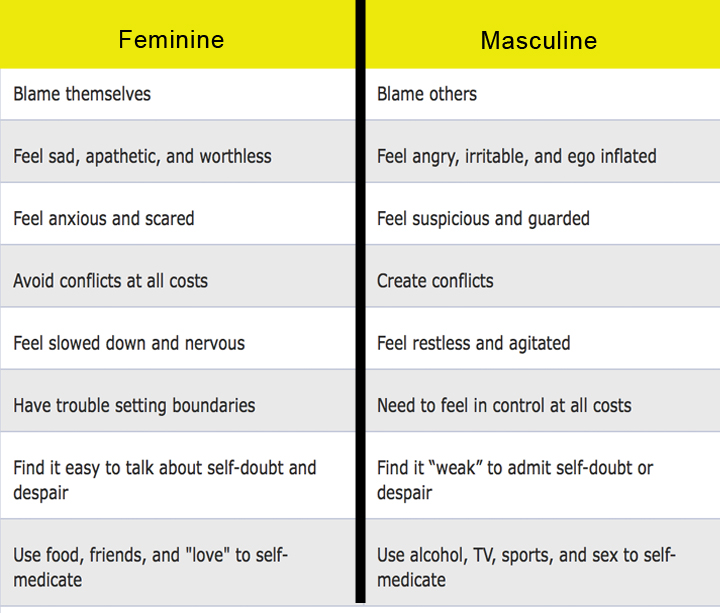
A common notion that is often not discussed when examining men and masculinity is how much emphasis is put on the performative aspect of being a man.
Very rarely are cis-men given space to interrogate and create a their own definition of masculinity that includes being emotionally/mentally sound and whole. Men often have to look outside of themselves for their first definition of what it means to be a man, so much so that it often leaves men in a dark and sad state of existence.
From sports to the playground, masculinity is coded with phrases like “boys will be boys” or my personal favorite, “that’s just how boys/men are.” The emotionally damaging “masculinization” of young men starts even before young men have a keen sense of self; often before they even have the developmental capacity to fully understand the binary (gender vs. performance of gender.) These gender roles and expectations of gender performance are often given out like candy, without a child being able to fully comprehend what they’re ingesting.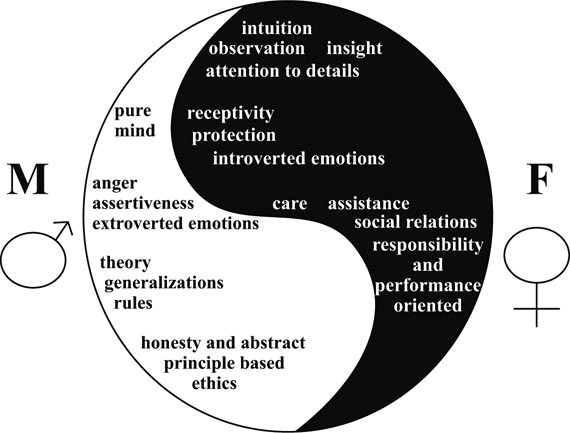
This notion that to be a man means being angry or emotionally unavailable has always been something that intrigued me. As both a queer and Black man, I often question where these ideas began and why people continue to hold them in such high regard. As I continue to battle with the true definition of what it means to be a “man” and how heteronormative (and homonegative) the definition continues to be, I recognize that the toxic notion of masculinity is forced on young cis-men before they even know how to properly tie their shoes.
I can remember hearing conversations between my mother and my uncles about how fearful they were for me because I didn’t exhibit the behaviors of masculinity. I was emotionally available, somewhat shy, and enjoyed connecting with people on a deeper level. Somehow, that was seen as effeminate and the men in my family worked tirelessly to “make me harder,” common rhetoric used in the Black cis-male community.
It behooves me to say that the root definition of what it means to be a man or to perform masculinity here in America continues to be grounded in oppression, marginalization, and white supremacy.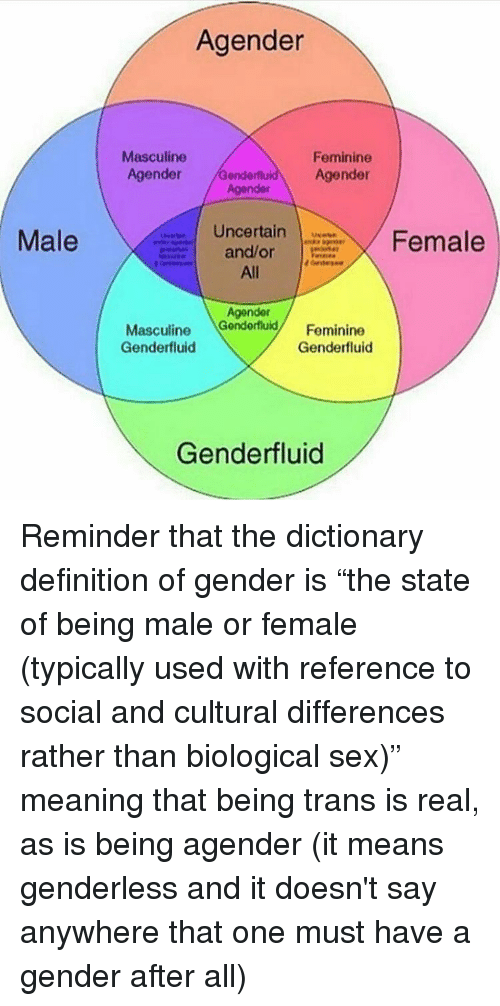 As I have done my own work to unlearn the toxic nature of masculinity, I now comprehend that the harm being done to many young cisgender men, specifically young white cisgender men, is often connected to noxious ideals of power, positionality, and the want/need for cisgender men to be seen as a dominant gender. I am even more certain of this with the reports of gun violence transfixing us here in the U.S.
As I have done my own work to unlearn the toxic nature of masculinity, I now comprehend that the harm being done to many young cisgender men, specifically young white cisgender men, is often connected to noxious ideals of power, positionality, and the want/need for cisgender men to be seen as a dominant gender. I am even more certain of this with the reports of gun violence transfixing us here in the U.S.
In challenging masculinity as a harmful and sometimes deadly social construction, we have to acknowledge that being viewed in society as masculine is reputed as a gift, while being viewed as feminine is a curse. Even with all of the negative ideologies of maleness and masculinity that cisgender men (and society) consume, being seen as a “man” means being free from critique and the need to unlearn elements of sexism and patriarchy, even in moments when you are the reason for someone else’s struggle and pain.
Films like The Mask You Live In and Tough Guise 2 examine the concept of performative masculinity and shine light on the lack of accountability that comes with maleness. They examine how young men are wired to “wage war” from a young age and encouraged to lean into concepts related to social dominance hierarchies. Cis-men, specifically cis-heterosexual men, are encouraged to take up any and all space, without questioning whether they are fully deserving of it.
They examine how young men are wired to “wage war” from a young age and encouraged to lean into concepts related to social dominance hierarchies. Cis-men, specifically cis-heterosexual men, are encouraged to take up any and all space, without questioning whether they are fully deserving of it.
A struggle that I have had as a queer cis-man of color is comprehending what maleness and masculinity means for me. I have never presented myself as a masculine. My voice is soft, I have always been called “pretty,” and I am highly emotional — all things associated with femininity.
Though I have every right to be an aggressively violent person because of the things I have experienced as a queer Black man, I have chosen to unlearn maleness and masculinity as something ferocious. In my quest to redefine maleness and masculinity, I have started to understand that being a man means doing a great deal of self work.
My definition of “being a man” challenges me to speak openly and honestly about my thoughts and feelings.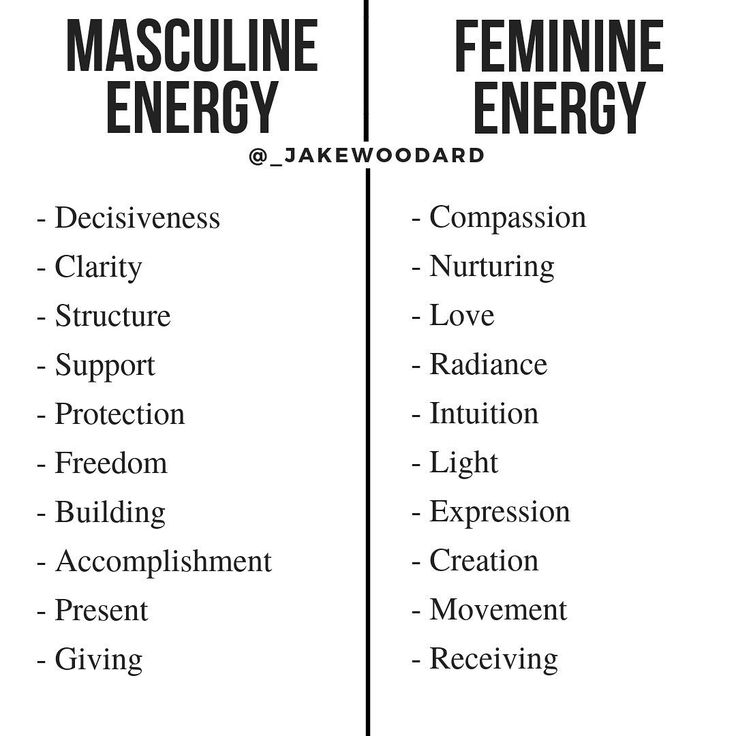 It’s relearning how to speak from a truly genuine and unapologetic place. It’s seeking out regular psychological therapy — something that many cis-men, specifically cis-Black men are taught not to do. But most important, it’s knowing how to be honest with myself about about where my pain and trauma begin and working through it to heal.
It’s relearning how to speak from a truly genuine and unapologetic place. It’s seeking out regular psychological therapy — something that many cis-men, specifically cis-Black men are taught not to do. But most important, it’s knowing how to be honest with myself about about where my pain and trauma begin and working through it to heal.
Before challenging others to learn what it means to “man-up,” I would challenge everyone to unlearn what it means to be a man in our society and find a definition that allows cis-men to be happy, whole people. We must teach men not to see maleness and masculinity as superior to femininity, but dangerous without it. We must engage men to stop seeing their maleness and masculinity as being something that they should fear, while encouraging them to embrace their full authentic truth.
It is only then that we can truly create a healthier definition of what it truly means to be a man.
Masculine - Definition, Meaning & Synonyms
SKIP TO CONTENT
If something’s masculine, it’s related to men.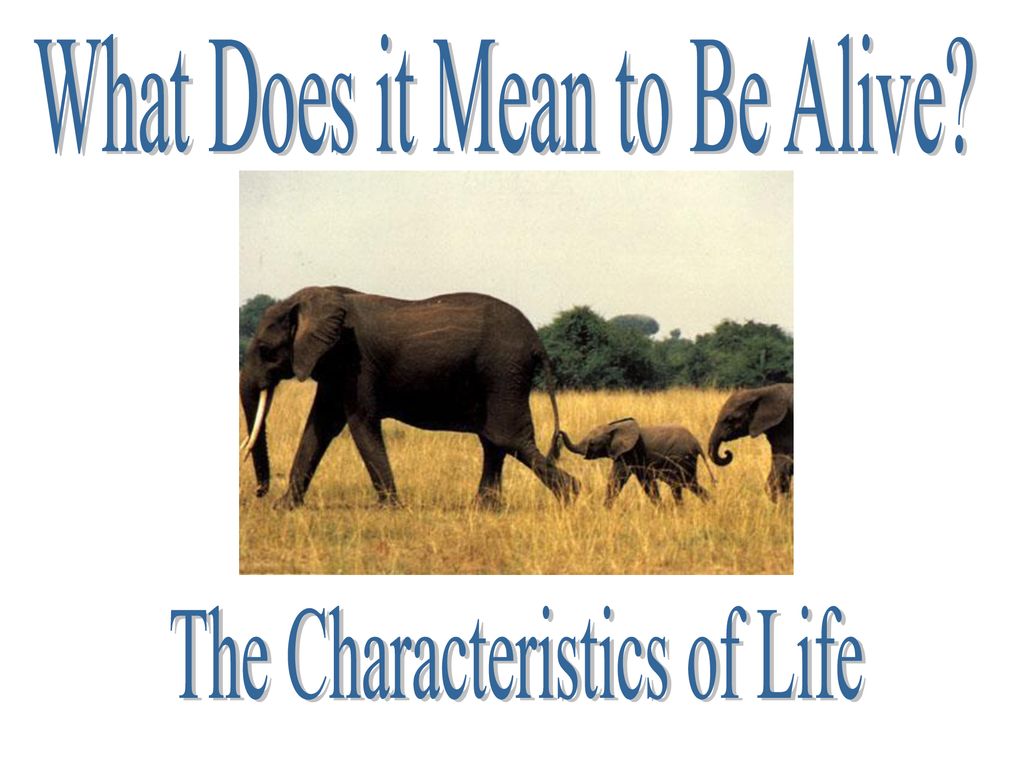 When you hear a masculine voice outside greeting your neighbor, you know it’s your dad and not your mom.
When you hear a masculine voice outside greeting your neighbor, you know it’s your dad and not your mom.
Masculine can describe people or things that have qualities often associated with men. If someone has a masculine appearance, the person is probably tall and strong. If your new jacket has masculine tailoring, that means it’s cut like a man’s jacket. Masculine can also refer to words. In many languages, words — especially nouns — are given a gender. If you’ve studied French or Spanish, you know you need to figure out which article to use with a masculine noun.
Definitions of masculine
-
adjective
associated with men and not with women
-
Synonyms:
-
manful, manlike, manly
possessing qualities befitting a man
-
male
being the sex (of plant or animal) that produces gametes (spermatozoa) that perform the fertilizing function in generation
-
butch, macho
used of men; markedly masculine in appearance or manner
-
male, manful, manlike, manly, virile
characteristic of a man
-
mannish
characteristic of a man as distinguished from a woman
-
manful, manlike, manly
-
adjective
of grammatical gender
-
noun
a gender that refers chiefly (but not exclusively) to males or to objects classified as male
-
adjective
(music or poetry) ending on an accented beat or syllable
“a masculine cadence”
“the masculine rhyme of `annoy, enjoy'”
-
Synonyms:
-
accented, stressed
bearing a stress or accent
-
accented, stressed
Whether you’re a teacher or a learner, Vocabulary.
 com can put you or your class on the path to systematic vocabulary improvement.
Get started
com can put you or your class on the path to systematic vocabulary improvement.
Get started
What does it mean to be a man in a world where the value of a person is usually measured by sexist stereotypes / AdMe
Men are surrounded by sexist stereotypes no less than women. The father teaches the boy that "he's a man," which means he shouldn't whine and he should be able to stand up for himself. The child grows into a young man, and then it turns out that the father's instruction was narrowly focused. Indeed, in order to “pass for a man” in modern society, masculinity alone is not enough. The truth is that "being a man" means many different "beings" and many different "men".
I am the author of Bright Side. en . I will not say that I have been to many places and seen a lot of things, therefore, from the height of my worldly wisdom, I will now “open my eyes” to everyone. I will just analyze 6 typical stereotypes that are common not only in the male but also in the female environment and tell you why conforming to them does not always mean “being a man”.
I must make a reservation right away that everything stated below is a personal experience that may not coincide with the experience of other people.
Stereotype #1: A man must exhibit 'masculine' behavior in every possible way
© The Curious Case of Benjamin Button / Paramount Pictures, The Kennedy/Marshall Company, Warner Bros. pictures co.
People of different generations and cultures make different demands on masculine qualities. You must be a man for father, mother, younger brothers, older brothers, younger sisters, older sisters, friends, girlfriends, friends of parents, grandparents, even for the son of a mother's friend and for many others.
Almost all of the above in one way or another invest in the concept we are considering something of their own, often the opposite. Being a man for parents is not the same as for girls or friends. And sometimes everything is even more neglected, and being a man for a mother is not the same as for a father.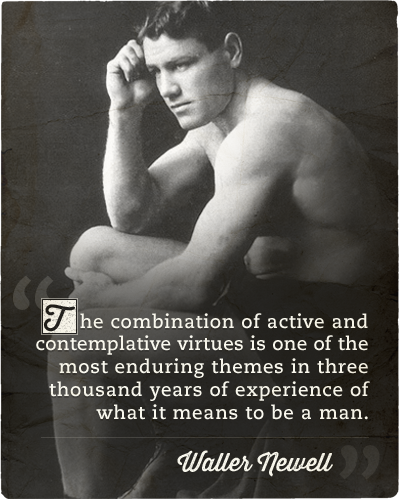 The same manifestations of masculinity may be welcomed by some people and immediately condemned by others.
The same manifestations of masculinity may be welcomed by some people and immediately condemned by others.
If we try to build a theory of masculinity on the difference in perception, we will end up with the system of sexist stereotypes that we have now. Boys are taught from childhood that the indispensable attributes of his masculinity are physical strength, a bank account, a car (necessarily no worse than that of friends), the ability to fill up with alcohol and not “move off”, as well as a large number of women who have been in his bed.
© Eddie the Eagle / Marv Films, Sam Hurwitz Productions, Saville Productions, Studio Babelsberg
Men who are not inclined to compete with those who follow stereotypes, who have chosen the “wrong” profession and interests, have to face a decrease in “masculinity status” in the eyes of even close people. Comparison is the main manipulation tool here.
“Over there, your son has already bought a house from your aunt and got married, and you are still moving around in rented apartments and spending money on travelling, you badass. .. It’s immediately obvious that the son of a friend is a successful person, but your father has achieved nothing, yes and you are all into it", - with these words, society tries to stamp on a man "not like everyone else", a loser, an "omega", whom no one will look at.
.. It’s immediately obvious that the son of a friend is a successful person, but your father has achieved nothing, yes and you are all into it", - with these words, society tries to stamp on a man "not like everyone else", a loser, an "omega", whom no one will look at.
Whether or not to conform to stereotypes is a matter of personal comfort, and there is no right or wrong here. Competition is good. Some men really need to prove themselves to each other, especially if there are women nearby. But, if a person does not want to start a family at 35, does not strive for money-grubbing, does not do as the majority does, or does not do what is accepted in his environment, he has every right to do so. To be able to defend your right to be yourself means to be a man.
By the way, this is a universal human problem. Only men are trying to fit men into one frame, and women into others. It takes courage to allow people to accept the real you, including your flaws, fears, and doubts.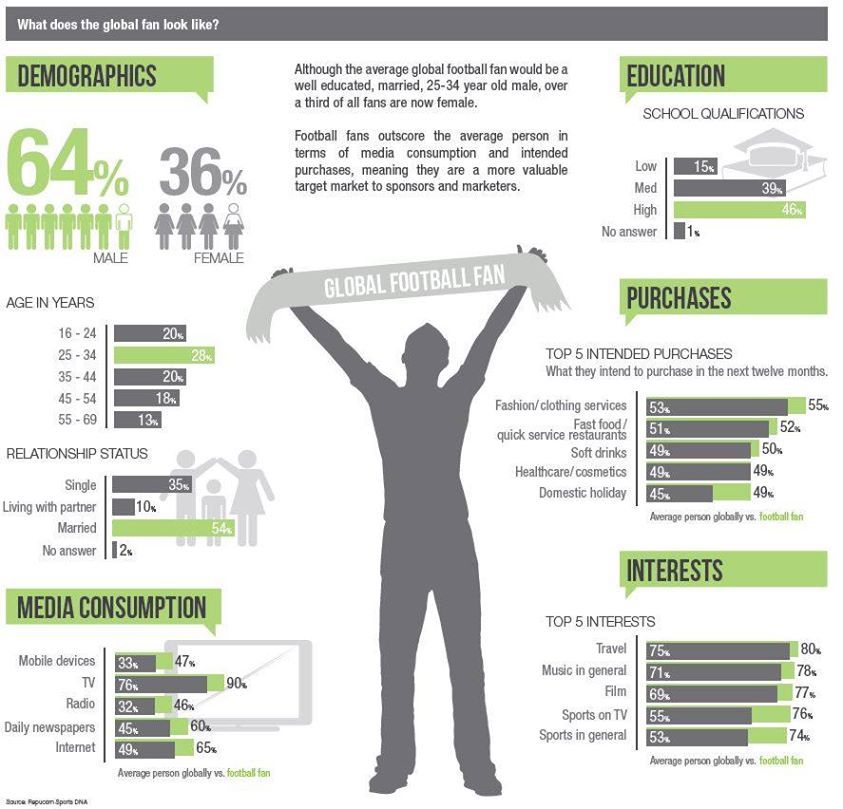 Whether you are a man or a woman, just be yourself.
Whether you are a man or a woman, just be yourself.
Stereotype #2: Aggression is a virtue and a "real man" quality
© The Shawshank Redemption / Castle Rock Entertainment
Admittedly, there are times when many (maybe all?) men have a craving for rough and overly straightforward problem solving. Get into a quarrel where it would be possible to solve the matter peacefully, or raise your voice when a few friendly words are enough. Aggressive behavior is an easy path, and therein lies its appeal.
However, being a man does not mean hitting the table with your fist and yelling if something is wrong. It does not mean to conflict at any opportunity and joyfully get into a fight. Such behavior is characteristic not so much of a "man" as of an immature and insecure person, unable to offer society anything but nerves and fists. Being a man means, without feigned suffering, being able to solve the craziest problems (including those of others), sometimes arising out of nowhere.
Letting yourself off the leash is a great temptation . But such men gradually lose their valuable qualities , because if you do not control yourself and your emotions, then this leaves an imprint on the whole personality. It will start with little things. When you have the opportunity to drink more than you should, you will drink. When you have the opportunity to complain about life, you will complain. And then, when you have the opportunity to take out your anger on someone or hit, you will do that too.
It is impossible to give up slack, not only because it is somehow "unmanly", because someone is satisfied with his life, despite tantrums or excessive aggressiveness. The fact is that in order to achieve a goal, sometimes you need to do something that you don’t want to. And on this path, people who control themselves will achieve more than others. A real man controls himself and understands that the easy path of aggression is not always the right one.
Stereotype #3: If you can't fight, you're not a man It was he, and not a woman, who hunted, protected shelter from predators, and fought. In days gone by, a man was cruel, stern, furious, strong. He was afraid, but did not avoid a fight with a stronger opponent. However, the pacifist vector of development of our society redistributed priorities over time. Today, a man has to work more with his head than with his muscles, but this does not make him less courageous.
It takes a certain degree of courage and belligerence to, for example, build a successful career, work multiple jobs, take responsibility for one's family, become a father, go against stereotypes. To succeed, today you also need to be able to fight to victory and overcome: yourself, circumstances, the interests of other people. The essence of masculinity has not changed.
There are many situations that cannot be solved with the help of muscles alone. In our time, fixing a faucet so that it doesn't drip is no less courageous than standing up for yourself in a fight. Although the latter will not be superfluous.
Although the latter will not be superfluous.
Stereotype #4: A man never cries
© Eternal Sunshine of the Spotless Mind / Focus Features, Millennium Films, This Is That Productions
This is a complex and controversial question. The cult of masculinity that accompanies the boy at all stages of growing up is designed to impose one simple attitude: to demonstrate weakness (which includes tears) is “unmanly”.
However, let's abstract for a while from the idealistic image of an inflexible lump of a peasant and consider several life situations. Let's conditionally divide them into 2 groups:
- death of a relative, serious illness, birth of a child;
- job loss, lack of money, routine.
Are there any men who can experience situations from the first group without passion? Certainly yes. However, do we have the right to call a weakling a person who nevertheless succumbed to feelings, faced with the death of a dear person or for the first time taking a long-awaited child in his arms? I think - no.
And now let's look at the second group. These are unpleasant and difficult situations, but nothing more. They temper and provide an opportunity to demonstrate their character and self-discipline. You can’t help such grief with tears - here you need to take and do: look for or change jobs, get out on vacation, and stuff like that.
Being a man means not losing your composure in difficult life situations and being able to take a hit. But such an attitude does not mean that one should allow pretentious posturing, unequivocally stating that "men never cry." Situations are different.
Stereotype No. 5: A man is the master of his word. He wanted it - he gave it, he wanted it - he took it back
© Il bisbetico domato / Capital Film
It is bad when a man considers a lie a matter of pride and is not ashamed of it. For example, to tell his wife that he went to work, and drive off with friends to [insert any male hobby], where, amid laughter and hooting, tell how cool he wrapped her around his finger. Yes, this is a very everyday example, but this does not stop it from being true.
Yes, this is a very everyday example, but this does not stop it from being true.
Lying quickly destroys any reputation. Men who are true to their word are trusted. They are respected, even if they are not directly supported. They say about such people: "His word is flint." And the fastest way to lose respect is to deliberately lie.
To illustrate the above, let's go back to the wife example. Yes, untruth will find a positive response among liars. However, if in such a company there is a man who respects his word of honor, will he in the future trust a person who is able to deceive even for the sake of an insignificant momentary benefit? No. And he will warn others.
Of course, everyone has told a lie at some point, especially in childhood and early adolescence. Sometimes we try to "rise" on a lie by impersonating another person and putting on a mask. What can I say, we even deceive ourselves.
Sometimes lying is not selfish: in such cases, by telling a lie, we are trying to save someone. For example, a friend has an accident and will not be able to walk. Does he need to be cheered up? Undoubtedly. Will the truth about disability lift his spirits? Hardly. How to act in such cases? This is a difficult moral choice.
For example, a friend has an accident and will not be able to walk. Does he need to be cheered up? Undoubtedly. Will the truth about disability lift his spirits? Hardly. How to act in such cases? This is a difficult moral choice.
A real man is true to his word even in small things. If it is possible not to lie, then one should not lie. If it is possible to fulfill this promise, there is no need to come up with excuses for yourself - take it and do it.
Stereotype #6: Only a father can raise a man in a boy
© Jersey Girl / Beverly Detroit, Close Call Films, Miramax Films, View Askew Productions from the negativity of the real world. As a result, capricious and infantile people grow up, who live in their parents' house up to 30+, experience problems in communication, and cannot stay at work.
It also happens the other way around, when a boy, living with his mother and grandmother, takes on male functions: he carries heavy loads, hammers the notorious nails, earns extra money. These are powerful prerequisites for early maturation and education of valuable qualities in oneself : responsibility, diligence, purposefulness.
These are powerful prerequisites for early maturation and education of valuable qualities in oneself : responsibility, diligence, purposefulness.
On the other hand, the presence of a father can have both positive and negative effects on personality formation. Raising a child is the biggest challenge a man can face in his life. And not everyone manages. If dad is hysterical, childish, or in the grip of addictions, what kind of example will he be and what can he teach?
Should a father raise his son? Yes. Is it possible to say with certainty that the one who was raised by his mother or grandmother is automatically devoid of masculine qualities? Definitely not.
What is it to be a man? I believe that masculinity is defined by a set of qualities. This post lists some of them. A real man is honest, knows how to control himself in difficult moments, is able to solve problems without pathos and complaints, is in harmony with his emotions and does not allow the stereotypical expectations of society to impose an uncomfortable rhythm of life.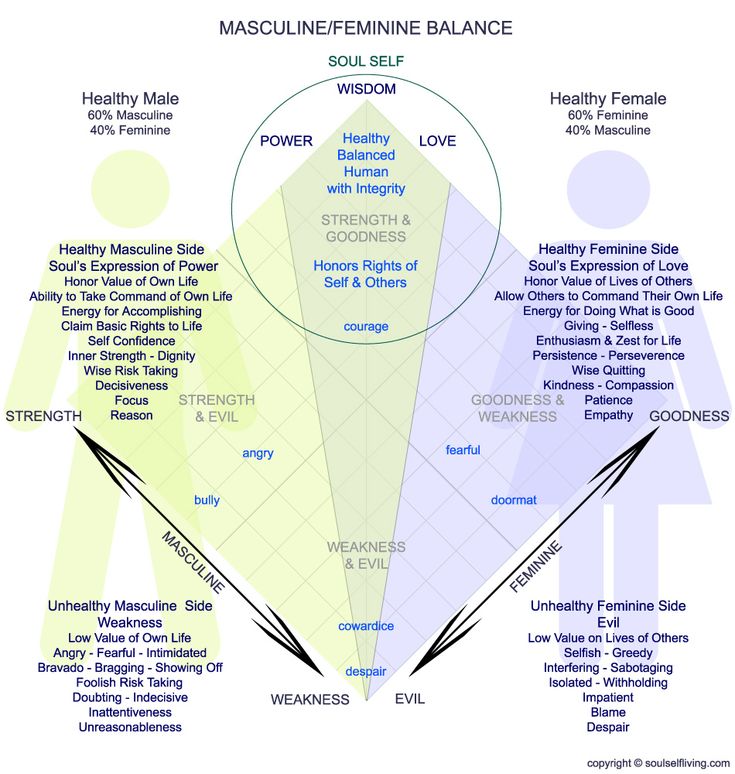 What does it mean to be a man for you?
What does it mean to be a man for you?
Preview photo The Shawshank Redemption, 1994 / Castle Rock Entertainment
Bright Side/Psychology/What does it mean to be a man in a world where the value of a person is measured by sexist stereotypes
What does it mean to be a man? - In focus
What distinguishes a "real man"? Men from Russia and Germany answered this question for the Goethe-Institut magazine. They also tried to determine how they themselves correspond to this ideal.
Guntram Gleiss, 35, looking for a job, Germany
© from the personal archive In the traditional sense, a real man is someone like James Bond. Strong, confident, independent. And, probably, related to large heavy machines or hard manual labor. Many years ago, when I was a boy, youth and young man, for me this was a self-evident ideal that was worth striving for. I liked to eat meat and served in the army.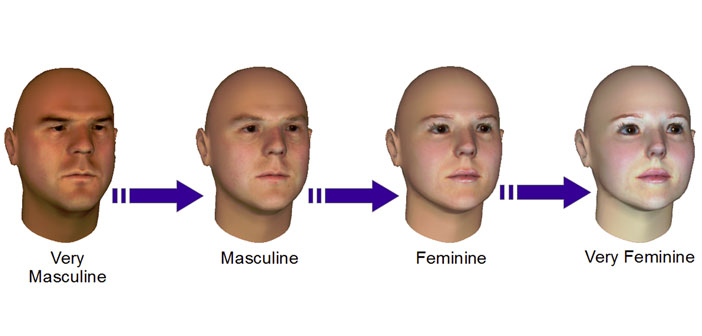 Today I would not do this, moreover, I switched to a vegetarian diet. When a friend of mine suggested yoga to me a couple of years ago, I thought it was definitely not for me, “I’m not a girl.” But I tried and I liked it. Therefore, now I consider myself far from such a definition of a “real man”. My girlfriend now earns more than me, and for me this situation is in the order of things, although this does not correspond to the generally accepted image of the "breadwinner". Rather, it interferes not because of "male-female" differences, but because it would be fairer to divide the responsibility in half. For me, being a responsible person is more important than being a real man. Therefore, it can be said that my priorities have changed over the years: I said goodbye to the mentality of Bud Spencer, which implies that one must be strong and rude. As you get older, other things come to the fore. It becomes clear that you are not James Bond. And that's great.
Today I would not do this, moreover, I switched to a vegetarian diet. When a friend of mine suggested yoga to me a couple of years ago, I thought it was definitely not for me, “I’m not a girl.” But I tried and I liked it. Therefore, now I consider myself far from such a definition of a “real man”. My girlfriend now earns more than me, and for me this situation is in the order of things, although this does not correspond to the generally accepted image of the "breadwinner". Rather, it interferes not because of "male-female" differences, but because it would be fairer to divide the responsibility in half. For me, being a responsible person is more important than being a real man. Therefore, it can be said that my priorities have changed over the years: I said goodbye to the mentality of Bud Spencer, which implies that one must be strong and rude. As you get older, other things come to the fore. It becomes clear that you are not James Bond. And that's great.
Igor Kuznetsov, 35, IT Product Manager, Russia
For me, in the concept of being a man, the most important thing is to be responsible, to be the strongest and most reliable in my family or team. I have no overtly orthodox beliefs and am very comfortable with a modern approach that blurs the distinction between male and female roles. But still, nature has decreed that we are different and created for different tasks. No one will argue that in men the body is physically stronger, which means that it is better suited for extracting resources. Men are more likely to take risks, and their activity is more often directed outward. Women, on average, are more introverted and conservative. They analyze risks well and care about the preservation of values. And I don’t think about my correspondence with the concept of a real man. No time to dig into yourself.
I have no overtly orthodox beliefs and am very comfortable with a modern approach that blurs the distinction between male and female roles. But still, nature has decreed that we are different and created for different tasks. No one will argue that in men the body is physically stronger, which means that it is better suited for extracting resources. Men are more likely to take risks, and their activity is more often directed outward. Women, on average, are more introverted and conservative. They analyze risks well and care about the preservation of values. And I don’t think about my correspondence with the concept of a real man. No time to dig into yourself.
Oliver Kunze, 52, engineer, Germany
Being a man for me means taking responsibility, having values and principles and complying with them. Have your own style. Do I fit this definition? I think that the path is the goal. Do I want to match? Yes, if we are talking about the ideal that I have described. But the meaning of other definitions is unlikely. Sitting bare-chested on a horse - why? I have no purpose to prove something to anyone.
But the meaning of other definitions is unlikely. Sitting bare-chested on a horse - why? I have no purpose to prove something to anyone.
Vladimir Polyakov, 36, Lead Robotic Systems Operator, Russia
In my understanding, a man should be an adult and different from a woman. An adult does not depend on the opinions of parents or others. He does not seek to prove something to others, but proves something only to himself. A mature person does not rely on authorities, he always analyzes information. He is not offended, but draws conclusions and gains experience.
When I say that a man should be different from a woman, I mean, first of all, emotions. In the same situation, they literally overwhelm the woman, and the man remains rational and logical. This does not mean that men are insensitive crackers, we are just as angry, frightened, touched and happy. However, we know how to postpone emotions for later.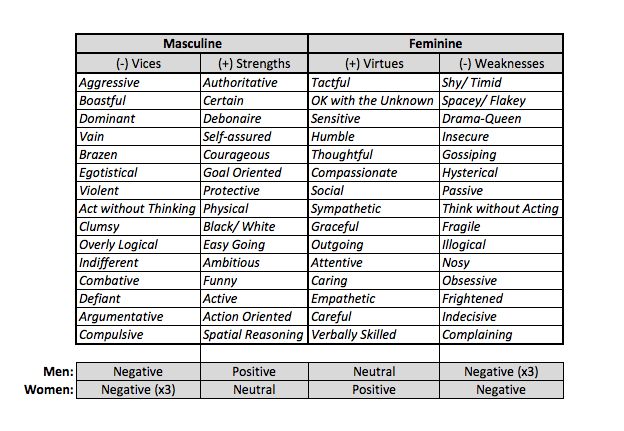 First deal with the problem, make a decision, and only then give vent to feelings. That is why a man is like a rock during a storm, he can shelter and protect those who are close to him. A man always knows what he wants and what he needs to do to get it.
First deal with the problem, make a decision, and only then give vent to feelings. That is why a man is like a rock during a storm, he can shelter and protect those who are close to him. A man always knows what he wants and what he needs to do to get it.
Many naively believe that there are some material signs of masculinity, with which you become a real man. For example, a large pickup truck or a worn leather jacket. In fact, for a real man, such attributes are only a consequence of his decisions. He needs a pickup truck to get to places where cars can't go. And the jacket was once new, but it took on branches and stones in the forest, cold asphalt during a sudden auto repair, so traces of time remained on it, almost the life story of the owner.
And a real man is strong - in spirit and will. He does not lose heart in difficult times, sets high goals and achieves them.
I think I pretty much fit that definition at the moment. Perhaps over time I will find additional criteria and change my mind, but now I can call myself a real man.
Lukas B, 31, student, Germany
For me, there is no specific set of qualities that a real man must match. I know so many men who in my eyes are “real”. I believe that everyone should find out for themselves and for themselves. However, for me, a real man is one who has certain qualities and behaves accordingly: honest, direct, not too vain or sensitive, generous, patient, responsive, ready to help and with a certain firmness towards himself. Men should not complain, they should accept the challenges of life with calmness and readiness. Putting the interests of the family always above their own interests. Men should be able to behave correctly and respect others, but at the same time not be offended. In general, to be a real man, you need to remember Rudyard Kipling's poem "If." However, all these qualities are not exclusively masculine. Women who have them also only get better from it. Being a man in the spirit of my definition is not easy, but I try. These are lofty ideals that require effort, while inner impulses may be quite different. You need to remind yourself often of who you want to be in order to correct your own behavior. But I think it's worth it.
Being a man in the spirit of my definition is not easy, but I try. These are lofty ideals that require effort, while inner impulses may be quite different. You need to remind yourself often of who you want to be in order to correct your own behavior. But I think it's worth it.
Boris Kuzin, 28, urologist surgeon, Russia
© from the personal archive
Being a man personally for me means being responsible for every act and word. And behind this is already a set of many qualities that a man must cultivate in himself or with the help of his parents, loved ones and experience. It's not about orientation or appearance. In the female body, cyclical hormonal changes occur every month, not to mention pregnancy. A woman can afford to say "in the heat of the moment", she can afford to act impulsively. The man is not. A man must be aware of himself and those around him for every word he says in private or in public, especially if these are loud statements.






